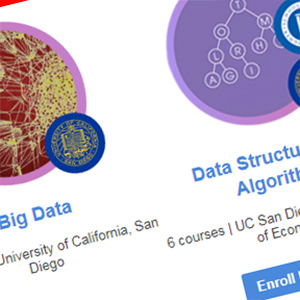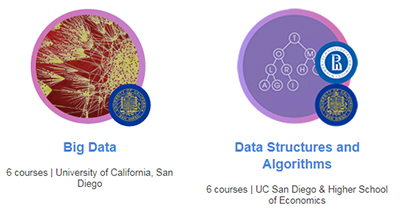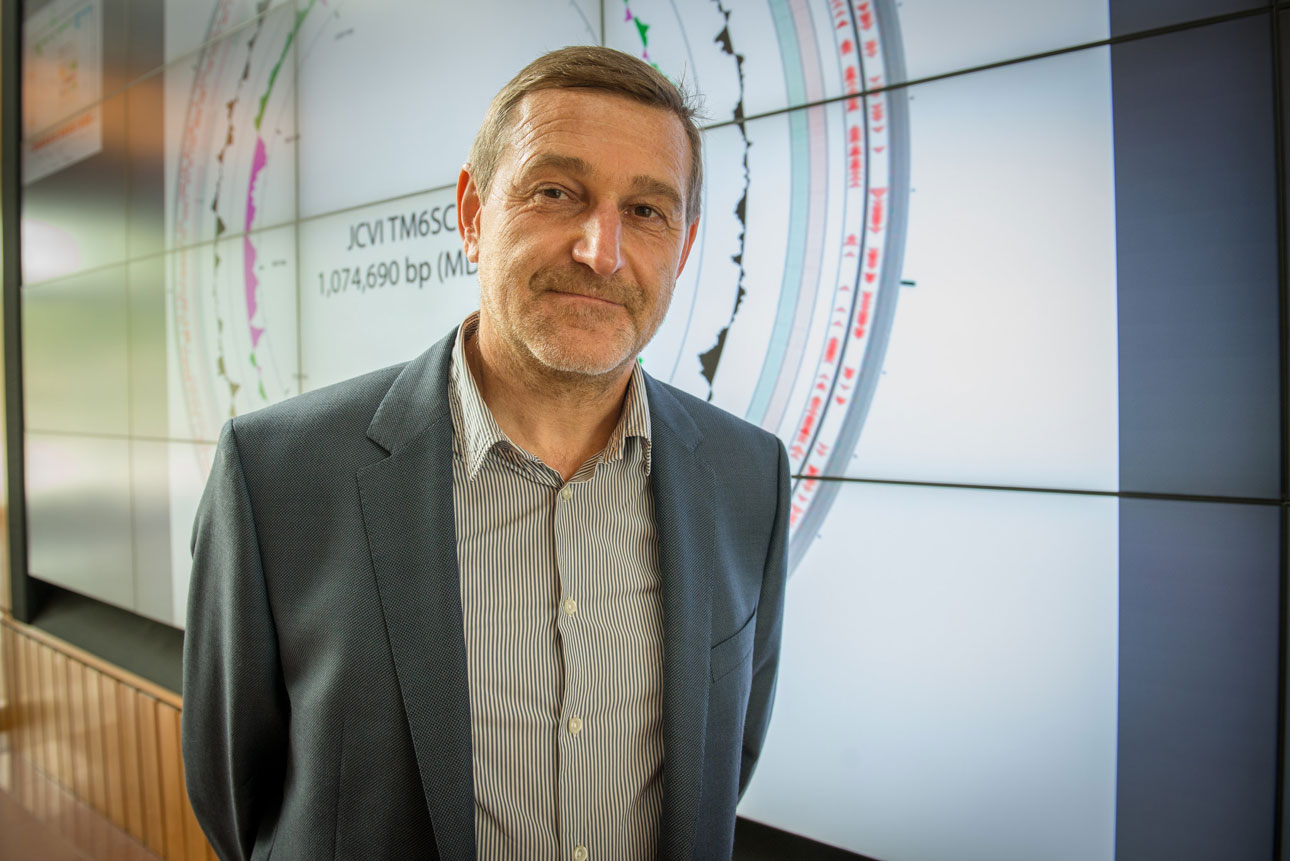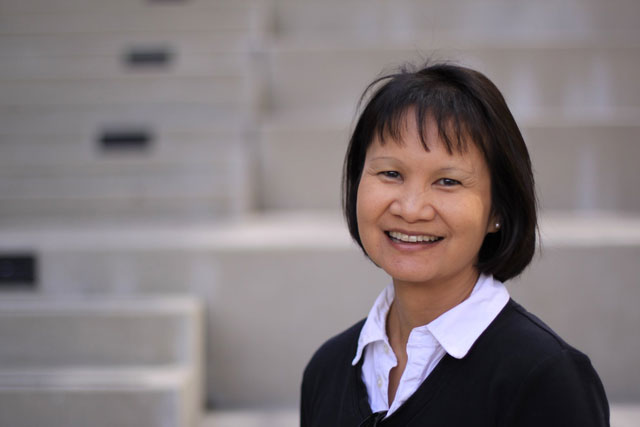

science and data engineering were developed with
partners at UC San Diego.
Here’s a sign of the times: When it sent out a list of four “top specializations” – each containing five or six courses in the area of computer science and data engineering – the online learning platform Coursera named four sets of courses starting on Labor Day. Of those four top picks, two were created at UC San Diego, underscoring how Computer Science and Engineering faculty have become important contributors to the world of massive open online courses (MOOCs).
Both of the UC San Diego specializations involve CSE faculty and partners. The Data Structures and Algorithms Specialization features faculty including CSE professors Pavel Pevzner and Daniel M. Kane, as well as occasional CSE lecturer and alumnus Neil Rhodes (M.S. ’87), CSE visiting professor Alexander S. Kulikov from St. Petersburg State University, and lecturer Michael Levin, an associate professor at Russia’s Higher School of Economics. The Coursera specialization was jointly created by CSE and the computer-science department of the Higher School of Economics, with support from industry partners Computer Science Center and Yandex Data Factory, where Levin serves as Chief Data Scientist.

and occasional lecturers Neil Rhodes and Michael Levin.
The Coursera specialization on Data Structures and Algorithms consists of six courses, each of them running four or five weeks. The series starts with Algorithmic Toolbox, followed by Data Structures, Algorithms on Graphs, Algorithms on Strings, as well as Advanced Algorithms and Complexity. The final course of the specialization is a capstone project based on a Genome Assembly Programming Challenge. Students learn how to assemble genomes from millions of short fragments of DNA and how assembly algorithms fuel recent developments in personalized medicine.

“This specialization is a mix of theory and practice: you will learn algorithmic techniques for solving various computational problems and will implement about 100 algorithmic coding problems in a programming language of your choice,” according to the program’s authors. “No other online course in algorithms even comes close to offering a wealth of programming challenges that you may face at your next job interview.
CSE’s Pevzner, who has developed more than a dozen online courses, says his team invested over 3,000 hours into designing challenges as an alternative to multiple-choice questions that are usually found in MOOCs. “For each algorithm students develop and implement, we designed multiple tests to check its correctness and running time — so they have to debug their programs without even knowing what these tests are!” he said. “It may sound difficult, but we believe it is the only way to truly understand how the algorithms work and to master the art of programming.”

Specialization on Coursera with Ilkay Altintas and
Amarnath Gupta.
The other Coursera top pick from UC San Diego is the Big Data Specialization, which promises to teach online students to “unlock value in massive datasets.” CSE lecturer Ilkay Altintas, who is Chief Data Science Officer at the San Diego Supercomputer Center (SDSC), helped develop the six courses on Big Data with Amarnath Gupta, director of the Advanced Query Processing Lab at SDSC, and CSE alumnus Mai Nguyen (M.S., Ph.D. '93, '96), SDSC’s lead researcher for data analytics. Following an introduction to Big Data, subsequent courses in the series explore Big Data Modeling and Management Systems, Big Data Integration and Processing, Machine Learning with Big Data, and Graph Analytics for Big Data. The final course involves a capstone project: students are asked to build a big-data ecosystem using tools and methods from the earlier courses in this specialization. As a result of the software company Splunk having sponsored the courses, learners with the top capstone projects will be eligible to present to Splunk executives and meet the company’s recruiters and engineering leadership. The first classes in the Big Data specialization will begin on September 4.

